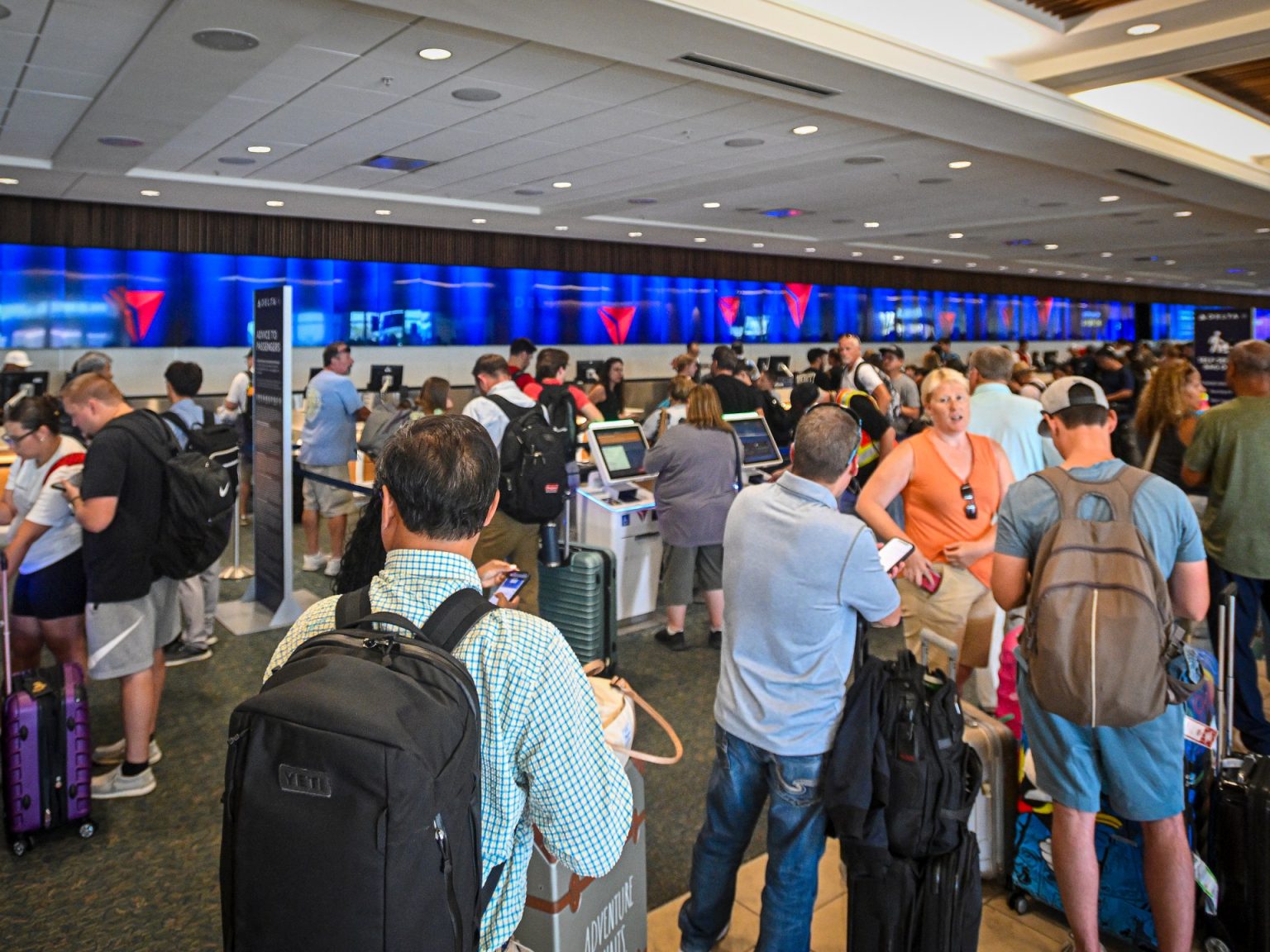A massive technology outage caused by a faulty software update wreaked havoc across the world, leading to disruptions in flights, financial companies, hospitals, supermarkets, small businesses, and government offices. Businesses and services were slowly recovering, with several services back online by Saturday. George Kurtz, the CEO of US cybersecurity company CrowdStrike, apologized for the widespread glitch and warned of potential exploitation by bad actors. US President Joe Biden’s team was standing by to provide assistance as needed, and flight operations across the country had resumed, although some congestion remained.
The scale of the outage was described as unprecedented by experts, indicating society’s increasing dependence on computers. Major airports in Europe reported gradual resumption of departures and arrivals, although some flights were canceled. In Latin America, airports were advising passengers to arrive early, while Beijing’s airports in China remained unaffected. The incident highlighted the vulnerability of the economy and markets, prompting a reassessment of reliance on technology companies for essential services. Experts emphasized the need for infrastructure to be resilient against similar common cause problems.
CrowdStrike clarified that the incident was not a security or cyber incident, and their customers remained fully protected. George Kurtz expressed deep regret for the inconvenience caused and vowed to work with impacted customers to ensure systems were back up and running. Analysts noted that while the outage was damaging for CrowdStrike, competitors were unlikely to gain much market share as a result. The incident resulted from a technical update rather than a hack or cybersecurity threat, which would have been more concerning. CrowdStrike’s stock fell over 11 percent on Friday, despite being a popular cybersecurity provider with thousands of subscribers worldwide.
Experts warned that the aftermath of the outage might continue into the workweek as organizations worked to restore systems and assess the damage. The incident underscored the need for societies to reduce reliance on a few technology companies for critical services to prevent significant disruptions in the future. Toby Walsh from the Artificial Intelligence Institute at the University of New South Wales highlighted the irony of the internet’s design as a robust communication network, showing that vulnerabilities still existed. The incident prompted officials to rule out foul play and reassure the public that systems were being restored, although it may take time to address the consequences for ordinary people.
The incident raised questions about the vulnerability of the interconnected global economy and the need for resilience in infrastructure design. As companies patched up their systems and officials worked to alleviate panic, experts urged a reconsideration of dependence on technology companies for a wide range of services. The widespread nature of the outage and its impact on various sectors demonstrated the importance of developing robust systems to withstand common cause problems. Despite the challenges faced during the outage, efforts were being made to restore normalcy and ensure that such incidents did not lead to long-lasting disruptions in the future.


